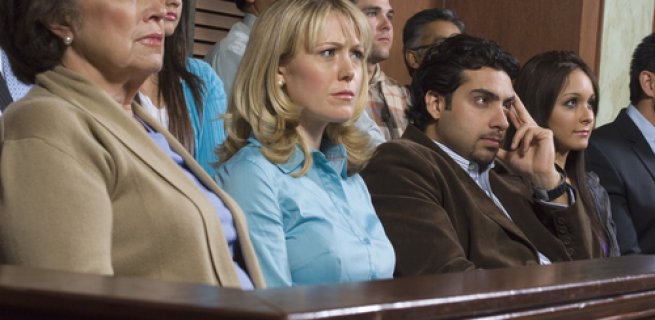Hundreds of thousands of Australians are summonsed for jury service each year. It is an important civic duty which is vital to the administration of our criminal justice system.
But research suggests that for most who are empanelled, the experience can be stressful and even cause lasting trauma.
Juror Stress
According to Paula Agor, director of the Center for Jury Studies at the National Center for State Courts in the US, juries in serious criminal trials can experience “serious stress-related symptoms… including anxiety, depression, nightmares, and even physical symptoms such as nausea, elevated blood pressure, chest pain, and shortness of breath.”
Those symptoms are often more pronounced in trials involving exposure to gruesome or sensitive evidence.
A recent study by professor Jane Goodman-Delahunty from the School of Psychology at Charles Sturt University professor confirms those findings, concluding that 70 per cent of jurors in Australia report some form of stress.
Indeed, a 2008 British study found that jury duty can even lead to symptoms of post-traumatic stress disorder, including avoidance of subject matter and activities associated with their experience as jurors.
Practical stressors
Juror stress can arise from practical stressors such as the financial impact of service and/or the disruption to one’s work, family and social life.
“One of the best ways to alleviate stress and anxiety is to talk it through with somebody else,” according to Sonia Chopra, a consultant for the National Jury Project in Oakland, California.
“While the jurors are in trial, that’s problematic, because they’re not technically supposed to talk about anything that happens in the courtroom with anyone. For the length of the trial, they’re having to just internalize everything that they’re hearing and they’re seeing.”
Jurors are, of course, prohibited from discussing the subject matter of the trial itself, but may take some comfort in speaking about the practical impact of serving.
Subject matter
Professor Goodman-Delahunty’s study found that viewing gruesome or sensitive images had a substantial impact on many jurors, as did receiving evidence or hearing testimony of the victim’s suffering.
Photographs of an alleged rape victim were particularly disturbing to one juror, who recalled:
“We had to see bruises and scratches and things on a female body, obviously seeing some personal areas”.
“Just seeing the results of someone being hurt, whether [the defendant was] guilty or not guilty, those marks were there.”
Pressure of the jury room
Many of the respondents in professor Goodman-Delahunty’s study related the stresses of the jury room, where tensions often ran high, and disagreements and bullying were not uncommon.
They also spoke of the stress than can be caused by having to determine the fate of another person’s life.
“That’s sometimes called the burden of justice on the jurors,” the professor remarks.
“[It’s] the notion that at the end of it, you make a determination, in a criminal case, about somebody’s guilt or innocence that could have very severe consequences for that individual.”
One jury foreman related that it was “emotionally difficult” for him to physically announce the guilty verdict, despite being convinced of the defendant’s guilt.
“He didn’t have a great life and his prospects were bleak”, the juror remembered.
Recommendations
Professor Goodman-Delahunty recommended the implementation of the following measures:
- Providing more information about daily expectations,
- Organising trials more effectively and efficiently ,
- Providing more post-trial treatment options, including informational brochures that alert jurors to the potential symptoms of juror stress and suggest common-sense coping techniques, and
- Running “debriefing sessions” or referrals to local mental health agencies, which consist of a short group counseling session where jurors can explore and better understand their emotional reaction to the trial and to jury service.
Although all jurisdictions provide a free counselling service for jurors during and after trial, a survey found that only half of jurors are aware of it.
Professor Goodman-Delahunty believes court officials should ensure jurors are told about the support available, and that judges should always warn jurors before distressing evidence is presented.












For anyone unvaccinated, it’s Covid revisited. Worse because you can’t talk to anyone about it